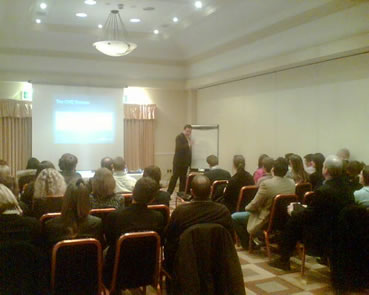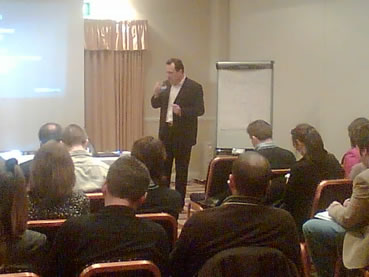|
MORE DETAILS
|
LUNCHTIME BRIEFING - 20 FEB 2008 - WILMSLOW
|
Eugene Pozniak of Siyemi Learning, explained how in the absence of a single, overarching regulatory body for CME activity across the region, individual countries are at varying stages of implementation. As such, the accreditation process throughout the continent is a splintered affair, governed by four different types of regulatory authority: National Accreditation Authorities, the European Accreditation Council for CME, European Specialty Accreditation Boards and Accredited Providers.
The attitude to CME differs from country to country. Across Europe, each individual autonomous healthcare system has different requirements and expectations of its doctors. In some countries, CME is mandatory, while in others, it is voluntary. In some, it is neither understood nor recognised. However, even in areas where CME is a legal obligation, enforcing compliance remains a challenge. Incentives and punitive measures, some seemingly Draconian, have been introduced to encourage and enforce uptake, but so far a successful method to police the system has yet to emerge.
Despite such a confusing environment, CME-accredited education is regarded as being important.
The axiom that CME is ‘education for doctors, written by doctors, presented by doctors’ dictates that there should be no direct industry involvement in specific CME programmes. However, the corporate goodwill derived from being associated with high-quality educational activity, and the benefits of increased therapeutic awareness within the prescribing community, make CME a vital consideration for industry. Whilst it is clear that companies cannot stipulate, manipulate or influence CME content, it is equally clear that companies who fail to support it may somehow be relinquishing an opportunity for competitive advantage.
Eugene has set up some learning modules on his web site which will provide further useful insights into this important topic.
To make sure you're included in announcements about future events just email Peter Llewellyn, if you haven't already done so, to register your interest.


|
|
|

